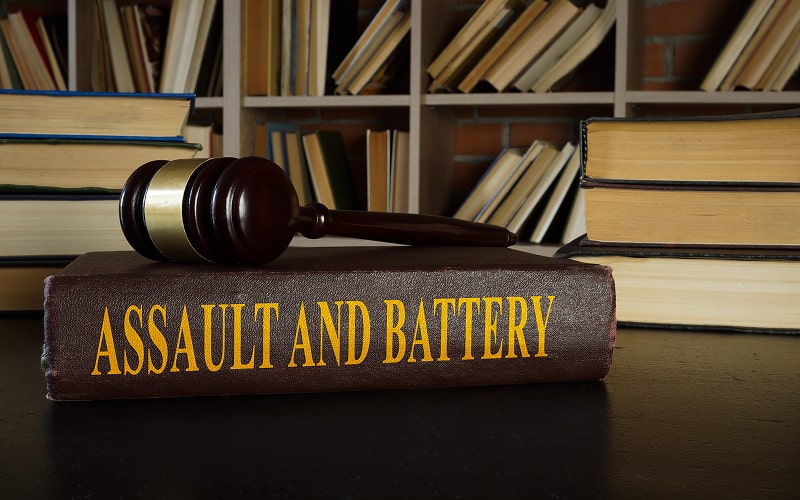Being charged with domestic assault in Fairfax County is a serious legal matter. The situation becomes even more complicated when prior convictions are involved. Courts take repeat offenses seriously, often imposing harsher penalties and stricter conditions. For defendants, this can mean facing a much tougher legal battle than a first-time offender.
Many people assume that past convictions are behind them, but Virginia law allows prior offenses to be considered in new cases. This means a misdemeanor charge can quickly escalate to a felony, carrying long-term consequences such as imprisonment, fines, and the loss of key rights.
Understanding how the legal system views repeat offenses is crucial for anyone facing a domestic assault charge. This article explains the impact of prior domestic assault convictions, and why experienced legal representation is vital for protecting your future.

Understanding Domestic Assault Under Virginia Law
Domestic assault charges in Virginia can arise from a wide range of situations. A verbal disagreement that turns physical, a misunderstanding that escalates, or even a false accusation can result in serious legal consequences. Unlike a general assault charge, domestic assault involves specific relationships that define how the case is prosecuted. Because domestic violence is a major legal concern, courts handle these cases aggressively, often erring on the side of caution when issuing protective orders and determining penalties.
The Virginia Code defines domestic assault as committing an assault or battery against a family or household member. Many people do not realize that they can be charged even if no physical injuries occurred. A police officer responding to a domestic dispute has the discretion to make an arrest if they believe an assault has taken place.
Virginia law has a broad definition of family or household members, including:
- Current and former spouses.
- Parents, children, grandparents, and siblings.
- Individuals who share a child, regardless of marital status.
- People who have lived together in the past year.
- In-laws residing in the same home.
This means that domestic assault charges can arise even in situations where the individuals involved are no longer living together or romantically involved. For example, a dispute between ex-spouses or former roommates could still be classified as domestic assault under Virginia law.
Understanding these legal definitions is essential, as they determine how a charge is classified and the penalties that may follow. Recognizing the broad scope of Virginia’s domestic assault laws is the first step in preparing a strong legal defense.
Classification & Penalties For Domestic Assault
Domestic assault is taken very seriously in Virginia, and the penalties can vary depending on the circumstances of the case. The severity of the charge depends on whether it is a first offense or if the accused has prior convictions. A first-time offender may face misdemeanor charges, but repeat offenses can quickly escalate to felonies.
Many defendants underestimate the long-term consequences of a conviction, assuming that a domestic dispute will be treated as a minor offense. However, even a first-time conviction can lead to jail time, fines, and restrictions on personal rights.
First-Time Offense
A first-time domestic assault charge in Virginia is classified as a Class 1 misdemeanor. This means the defendant could face:
- Up to 12 months in jail.
- A fine of up to $2,500.
- A protective order, restricting contact with the alleged victim.
- Mandatory anger management or counseling programs.
Even though a misdemeanor conviction carries lighter penalties than a felony, the consequences are still serious. A judge may issue a protective order that prevents the accused from returning home or contacting family members. Additionally, a conviction results in a permanent criminal record, which can impact future employment and housing opportunities.
Subsequent Offenses
If an individual has two or more prior domestic assault convictions within a 20-year period, the charge escalates to a Class 6 felony. The penalties for a felony domestic assault conviction include:
- Up to five years in prison.
- A fine of up to $2,500.
- Loss of firearm rights and other civil liberties.
Felony convictions have long-term consequences beyond prison time. They can restrict job opportunities, affect child custody cases, and lead to permanent social and legal challenges. The more serious classification of repeat offenses underscores why legal representation is essential for anyone facing domestic assault charges.
Impact Of Prior Convictions On Current Charges
Prior convictions can have a major impact on how a domestic assault case is handled in Virginia. The legal system does not treat repeat offenders the same way it treats first-time offenders. Instead, courts impose harsher penalties on individuals with a criminal history, especially when prior convictions involve domestic violence. This means that someone with a previous record of domestic assault faces an uphill battle when charged again. Even if the new charge seems minor, prior offenses can elevate it to a felony.
Legal Framework
Virginia law allows courts to consider an individual’s criminal history when determining the severity of new charges. If a defendant has two or more prior convictions for domestic assault within 20 years, the third offense automatically becomes a felony. This means what might have been a misdemeanor charge now carries the potential for years in prison. The legal reasoning behind this is that repeat offenses indicate a pattern of behavior, warranting more serious punishment.
Types Of Prior Convictions Considered
Not all previous convictions will escalate a domestic assault charge, but certain offenses carry more weight. Virginia law specifically considers:
- Domestic assault and battery.
- Malicious or unlawful wounding.
- Aggravated malicious wounding.
- Strangulation.
- Malicious bodily injury by means of a substance.
If a person has been convicted of any of these crimes, the prosecution will likely push for maximum penalties. Even older convictions can count, as long as they fall within the 20-year lookback period.
A history of domestic violence makes it harder to secure bail and increases the likelihood of harsher sentencing. Prosecutors may be unwilling to offer plea deals, leaving defendants with fewer options for reduced penalties. When prior convictions are involved, strong legal representation is critical to minimizing consequences.
Collateral Consequences Of Prior Convictions
A conviction for domestic assault in Virginia carries more than just criminal penalties it can also create lasting consequences that affect nearly every aspect of life. Even after serving a sentence or paying a fine, a criminal record follows a person for years, impacting employment, family life, and personal rights. The more prior convictions a person has, the more severe these collateral consequences become.
Firearm Possession Restrictions
One of the most significant consequences of a domestic assault conviction is the loss of firearm rights. Under both federal and Virginia law, individuals convicted of domestic violence offenses are prohibited from owning, purchasing, or possessing a firearm. This restriction applies even if the conviction was a misdemeanor rather than a felony.
For those who rely on firearms for hunting, personal protection, or employment, this restriction can be particularly damaging. Law enforcement officers, military personnel, and security workers may lose their jobs if they can no longer legally carry a firearm. Since these restrictions are permanent, the only way to restore gun rights is through a complex legal process.
Employment Challenges
A domestic assault conviction can make it difficult to find or maintain employment. Many employers conduct background checks, and having a criminal record especially for domestic violence may disqualify applicants from jobs. Fields such as education, healthcare, government positions, and law enforcement often have strict hiring policies regarding violent offenses.
A felony conviction creates even more obstacles, limiting access to professional licenses, security clearances, and state employment opportunities. Even for those who already have a job, a domestic violence conviction can lead to termination, especially in professions that require a clean criminal record.
Family Law Implications
Prior convictions for domestic assault can have a direct impact on child custody and visitation rights. Virginia family courts prioritize the best interests of the child, and a history of domestic violence can severely limit a parent’s custody rights. Judges may impose:
- Supervised visitation requirements.
- Restrictions on overnight stays.
- Complete loss of custody in extreme cases.
Even if the accused was never violent toward the child, courts may assume that a history of domestic assault makes them an unfit parent. These consequences extend far beyond the courtroom, impacting relationships and family dynamics for years.
These lasting effects underscore the importance of fighting domestic assault charges aggressively. With so much at stake, securing strong legal representation is essential for protecting one’s future.
Fairfax County Criminal Attorneys: Your Strongest Advocates

Fairfax County Criminal Attorneys provides aggressive legal defense for individuals facing domestic assault charges. Our attorneys examine every detail of a case, looking for weaknesses in the prosecution’s argument. We protect clients from severe penalties and secure the best possible outcome.
A strong defense begins with analyzing evidence, police reports, and witness statements. Our firm challenges unlawful arrests, improper handling of evidence, and inconsistencies in witness testimonies. We also negotiate plea deals when appropriate, working to reduce charges and avoid felony convictions.
Our firm values clear communication and personalized representation. We ensure clients understand their options and provide guidance throughout the legal process. If you or a loved one is facing a domestic assault charge, Fairfax County Criminal Attorneys is ready to fight for you.
A domestic assault charge becomes far more serious when prior convictions are involved. Virginia law imposes stricter penalties for repeat offenders, increasing the likelihood of felony charges, jail time, and long-term restrictions. Beyond legal penalties, a conviction can impact employment, firearm rights, and family law matters.
If you are facing charges, do not risk your future. Fairfax County Criminal Attorneys offers aggressive defense strategies to help protect your rights and freedom.




